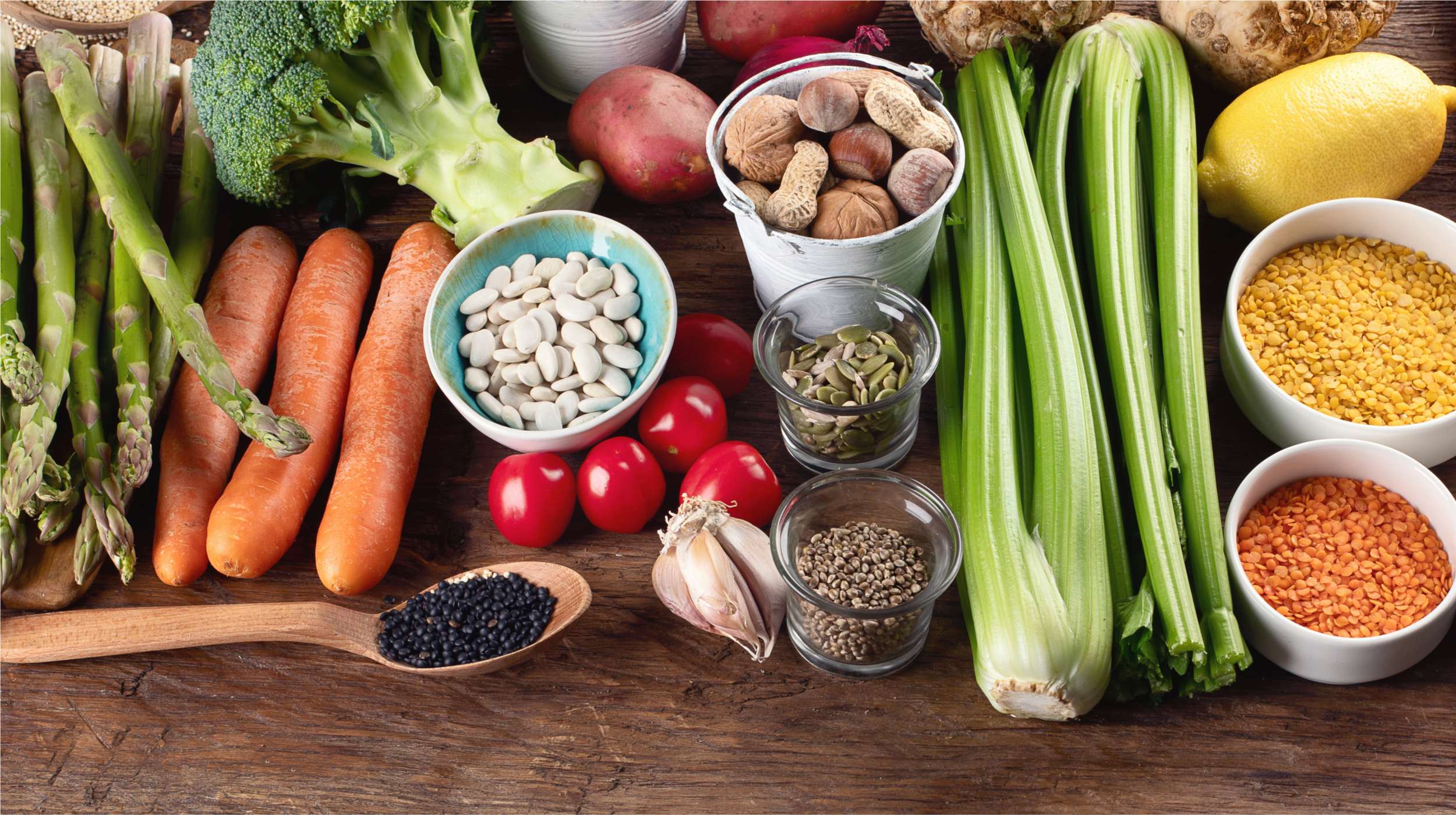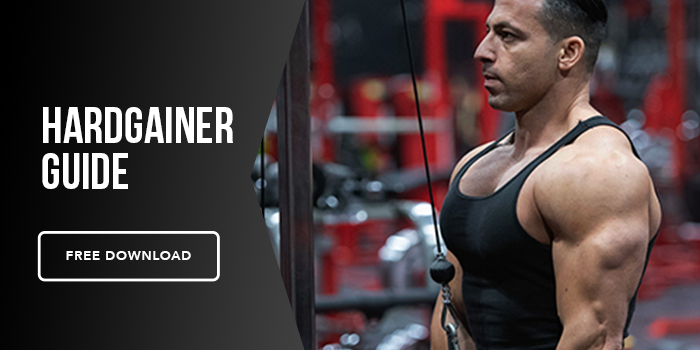What is a Hardgainer?
Building muscle is hard for nearly everyone due to the consistency and effort it takes in the gym, as well as maintaining a controlled diet designed to support your hard work. But for some of us, this process seems harder when we don't see returns, no matter how much we eat or train.
In this case, the term hardgainer refers to someone who can eat in a caloric surplus and trains regularly, without seeing any progress in their efforts to build muscle or gain weight. Putting on any mass seems nearly impossible and can be extremely frustrating!
If you find yourself a hardgainer, it could be a variety of reasons. For some, it could be that your training is not based on progressive overloading (1), or your workouts are not consistent due to going too hard in the gym and then missing days because more recovery is needed. For others, it might be that your nutrition isn't balanced, and you lack enough protein to build and maintain muscle. More commonly, you are not eating enough total calories, so your body doesn't have the energy to make lasting changes and grow with a proper weightlifting program.
Any of these reasons can make it an uphill battle towards putting on the muscle you want, unless you start making some changes. Even though most hardgainers feel that they eat a lot, but after tracking what they eat daily they can see the missing link. Typically, hardgainer diets lack total number of daily calories which explains why their bodies have not changed. It is wise to understand why what you eat and what you burn, aka energy balance, is important.
Why calories matter?
With any fitness goal in mind, it's essential to understand what types of calories you are consuming to get you closer to your goal. Sourcing your calories from whole natural foods first, is always a sure way to maintain proper nutrition and on the road to building muscle.
Maintaining a diet high in protein and carbohydrates provides your body with energy. When in an energy surplus, you can grow muscle with the right compound weightlifting routine. Studies show that for building muscle, keeping your protein target of approximately 0.7- 1 gram per pound of bodyweight spread throughout the day (2) is ideal.
What is often marketed for gaining weight faster for hardgainers is processed meal replacements, full of unnecessary ingredients, as well as junk food. Eating processed foods for extra calories is not the answer and will not help you towards your goal of putting on muscle in the long run. This pattern can lead to nutritionally under-eating nutrient-dense foods.
After a while, you might notice weight gain, but your body composition may not be stronger or more muscular. Instead, you have gained fat which can risk your health in the long term. Carrying around too much fat on your body can hinder your muscle gains by lowering your testosterone levels, as well as reducing your insulin sensitivity, which creates another uphill battle towards building muscle (3).
Can't meet your calorie goal?
But what happens when you have eaten all the whole food sources, and you still have calories to consume, but you're experiencing palate fatigue, and you can't eat anymore? Your perfectly balanced meals of chicken, rice, and vegetables are just too hard to swallow, and your body just won't do it!
Well, many studies have shown that eating refined carbs and sweeteners in processed foods like bread, pasta, and chips in fact turn into sugar in our bodies. These foods tell our brains to eat more, which can be used on occasion to your advantage (4).
Now this is not a suggestion to eat junk food on a regular basis, but to take advantage of our brain's ability to be hijacked by these palatable foods to overcome palate fatigue and natural satiety to meet your calorie goal. A good rule of thumb is to eat all of the necessary whole food sources for the majority of your calories, and then if you're simply unable to keep going, find a few foods that are highly palatable to add more.
When sourcing your calories from whole natural foods, consider higher calorie options such as eggs, nuts, peanut butter, avocados, and milk as additional whole food sources for your calorie surplus. Once you have sourced as much as you can with whole natural foods, you can add in additional calorie-dense, highly palatable foods, on occasion. Your total caloric intake should be in or around 20-24 calories per pound of bodyweight for hardgainers.
One way to consume your calories wisely is to spread them out throughout the day into 4-6 meals. By spreading them out, you can avoid overeating in one sitting, and utilize a variety of foods and flavors in one day. It also helps if two of your meals are in a liquid form to ease the consumption of your calories. Consuming a liquid shake of roughly 600 calories will keep you feeling less full than an entire meal of whole food, making it easier to meet your calorie goal. For example, using a high-quality protein powder, milk or almond milk, peanut butter, and a banana is a nutrient-dense liquid shake, in addition to your whole food meals.
So, there are ways to help you move on from being a hardgainer and change your body composition by choosing wisely what foods you consume to meet your caloric goal. Remember to focus on a calorie surplus with the majority sourced from nutrient-dense food, maintain consistent levels of protein, and practice a full-body routine consisting of compound lifts regularly. This simple and effective route will take you to your goal if you are following a balanced workout program and getting plenty of rest to recover. The road to becoming a gainer rather than a hardgainer is a process, and to make real changes remember to give yourself time to do so.
1) https://www.ncbi.nlm.nih.gov/pmc/articles/PMC4215195/
2) https://pubmed.ncbi.nlm.nih.gov/29497353/
3)https://www.ncbi.nlm.nih.gov/pmc/articles/PMC4038351/#:~:text=The%20mechanisms%20by%20which%20visceral,draining%20into%20the%20portal%20vein.
4) https://academic.oup.com/ajcn/article/98/3/641/4577039?sid=44ef5031-b040-4501-8e93-af85301d69c6






